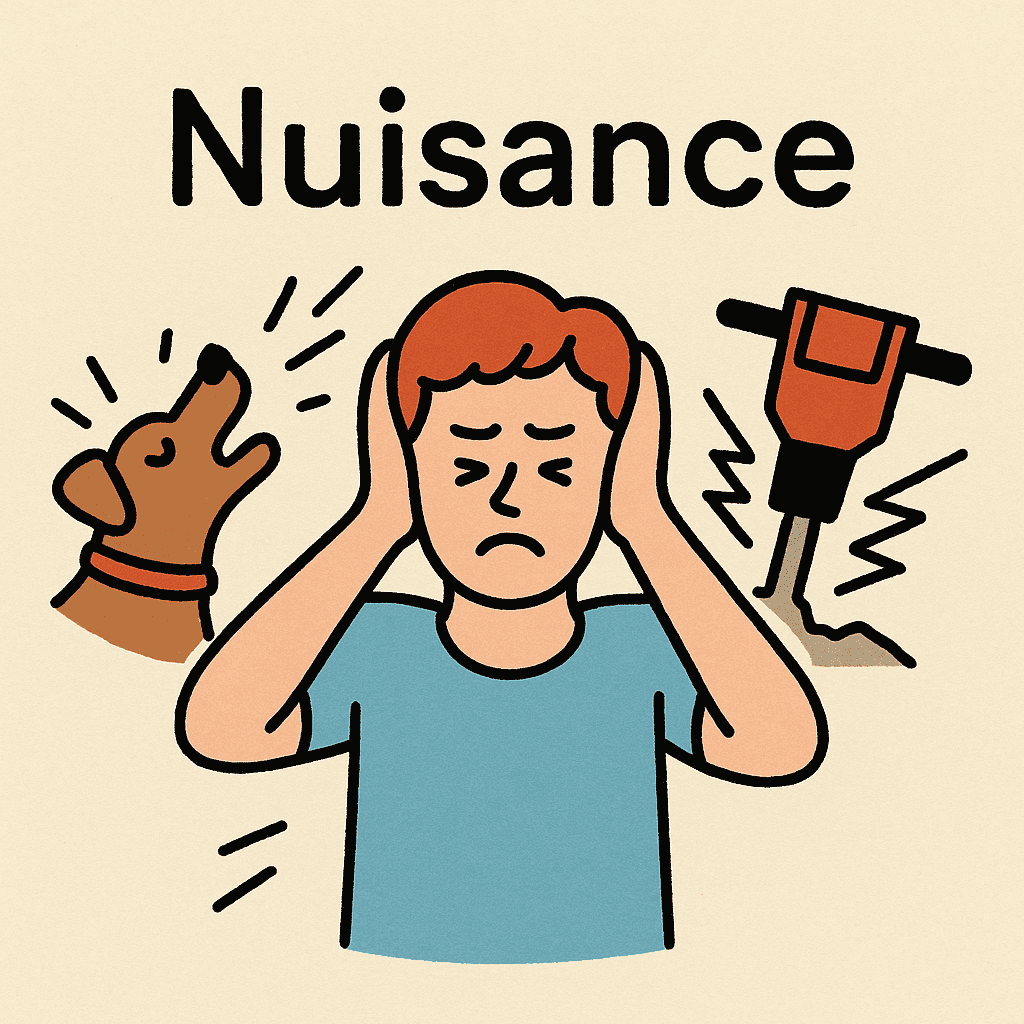Meaning
- Nuisance is a noun that refers to something or someone that causes annoyance, inconvenience, or trouble.
- In legal terms, it can mean an act that unlawfully interferes with the use of property or rights.
Grammar and Usage
-
Part of speech: Noun
-
Common structures:
- “be a nuisance” (to cause trouble or annoyance)
- “find sth/sb a nuisance” (consider something bothersome)
- “cause a nuisance” (create inconvenience)
Common Phrases
- Be a nuisance – to annoy or bother others.
- Cause a nuisance – to create inconvenience.
- Public nuisance – an act that disturbs the community.
- Minor nuisance – a small irritation or annoyance.
Collocations
- Adjectives + nuisance: real nuisance, constant nuisance, public nuisance, petty nuisance
- Verbs + nuisance: cause nuisance, be nuisance, find nuisance, avoid nuisance
Examples
- The buzzing mosquitoes were a real nuisance during the picnic.
- Don’t be a nuisance and let your brother study in peace.
- Construction noise has become a public nuisance in the neighborhood.
- The faulty printer is more of a nuisance than a help.
- She found it a nuisance to carry so many heavy bags.
- The new law is aimed at reducing public nuisance caused by loud parties.
- His constant interruptions were a nuisance to everyone in the meeting.
- Littering in the park is considered a nuisance by local authorities.
Synonyms or Related
- Annoyance
- Irritation
- Inconvenience
- Disturbance
- Trouble
- Pest
